How to Screen Tenants Effectively in Jupiter, FL
Understanding the Importance of Tenant Screening
Tenant screening is a cornerstone of successful property management. For landlords and property managers in Jupiter, FL, finding responsible tenants can mean the difference between a smooth rental experience and costly complications. This process ensures that tenants are reliable, financially stable, and respectful of your property. By neglecting proper screening, you risk financial losses, property damage, and even legal battles, all of which can severely impact your investment.
Key Benefits of Effective Tenant Screening
Reduced Risk of Non-Payment: Thorough screening allows landlords to verify a tenant’s financial capacity and history of paying rent. This reduces the likelihood of missed payments.
Lower Turnover Rates: Reliable tenants are less likely to terminate leases early or create disturbances, which contributes to a more stable rental income.
Protection of Property: Tenants with a proven record of maintaining properties minimize wear and tear, ultimately preserving the value of your investment.
Compliance with Legal Standards: A standardized screening process ensures adherence to housing laws, reducing the risk of discrimination claims.
Peace of Mind: Knowing your tenants have been thoroughly vetted allows for a more stress-free property management experience.
Legal Guidelines for Tenant Screening in Florida
Familiarize Yourself with Fair Housing Laws
The Fair Housing Act prohibits discrimination based on race, color, national origin, religion, sex, familial status, or disability. Florida’s laws expand on these protections, and landlords must avoid any actions that could be perceived as discriminatory.
Understand Local and State Regulations
Florida’s landlord-tenant laws outline specific requirements regarding tenant applications and interactions. For example, if an applicant is denied based on their credit report, the landlord must provide a written explanation. Ensure all processes, including security deposits and lease agreements, align with these regulations.
Background Checks and Privacy Laws
When conducting background checks, landlords must follow the Fair Credit Reporting Act (FCRA). Tenants should be informed about the checks being performed and give explicit consent. Keeping sensitive information secure is crucial to avoid legal repercussions.
Establishing Clear Rental Criteria
Creating and adhering to clear rental criteria not only simplifies the tenant screening process but also protects you from potential legal challenges. Transparency is key—share your criteria with all applicants upfront. Essential criteria include:
Income Verification: Specify a minimum income-to-rent ratio, such as 3:1, to ensure tenants can afford the property.
Creditworthiness: A credit score benchmark helps assess financial reliability. Scores above 650 are generally considered favorable.
Employment Stability: Consistent employment history is a strong indicator of a tenant’s ability to meet financial obligations.
Rental History: Investigate prior landlord references to identify any patterns of missed payments or property damage.
Criminal Background: Decide which criminal offenses may disqualify applicants, focusing on issues like violent crimes or property-related offenses that impact safety.
Designing a Comprehensive Rental Application
A well-structured rental application is your first line of defense against problematic tenants. Ensure your application includes:
Personal Information: Full name, contact information, and a valid government-issued ID.
Employment Details: Current employer, position, salary, and duration of employment.
Rental History: Previous residences, landlord contact information, and reasons for leaving.
References: Professional and personal references who can vouch for character and reliability.
Consent for Background Checks: Written permission for credit, criminal, and rental history screenings is essential to stay compliant with laws.
Leveraging Technology for Tenant Screening
In Jupiter, FL, the use of property management software has become increasingly popular, allowing landlords to manage the screening process more efficiently. Here are a few ways technology can enhance your tenant screening process:
Online Applications: Digitally collecting applications saves time and reduces paperwork.
Automated Background Checks: Use platforms that integrate with credit bureaus and criminal databases for faster results.
Organized Data Storage: Keep all applicant information in one secure, easily accessible place.
Improved Communication: Automated email systems can streamline communication with potential tenants, ensuring a smooth flow of information.
With these tools and practices, you can significantly reduce the time and effort involved in screening tenants, while maintaining a high level of accuracy and compliance.

Get a Free Rental Analysis
Want to know how much your home will rent for? We’ll send you a free rental report!
Conducting Credit and Financial Checks
Financial stability is a critical factor when evaluating potential tenants. Conducting thorough credit and financial checks helps ensure that the tenant can meet their rental obligations without strain. Here’s how to approach this:
Checking Credit Reports
Request a credit report from reputable credit bureaus such as Experian, TransUnion, or Equifax. These reports provide detailed insights into an applicant’s financial behavior, including:
Payment history
Outstanding debts
Credit utilization ratio
Bankruptcies or liens
Look for consistent, on-time payments and a low debt-to-income ratio. While a high credit score is desirable, consider applicants holistically if they have reasonable explanations for any red flags. For example, medical debt or a brief period of unemployment might not indicate poor financial habits.
Verifying Income
To verify an applicant’s income, request:
Recent pay stubs
Tax returns (for self-employed individuals)
Bank statements
A letter from their employer
Cross-check the provided documentation to ensure accuracy and authenticity. A common benchmark is that the tenant’s income should be at least three times the monthly rent. If the tenant is self-employed, analyze their business’s financial stability alongside personal income.
Assessing Financial Stability
Beyond income and credit, assess whether the tenant has a financial cushion to handle emergencies. This can be determined by:
Reviewing their savings or checking account balances
Asking for proof of stable employment over an extended period
Additionally, ask applicants about their long-term financial plans to gauge their ability to remain consistent renters.
Handling Co-Signers
In cases where the tenant’s financial qualifications are borderline, consider allowing a co-signer. Ensure the co-signer meets your financial criteria, as they will be legally responsible for the rent if the primary tenant defaults. This option can expand your pool of tenants while maintaining security.
Evaluating Rental History
A tenant’s rental history can provide valuable insights into their behavior as a renter. Contact previous landlords to inquire about:
Payment timeliness
Lease violations
Property upkeep
Complaints or disturbances
Always verify the legitimacy of the landlord’s contact information to avoid false references. Inquire about whether the tenant gave proper notice before vacating and if they would rent to the tenant again. A pattern of positive feedback from landlords is a strong indicator of a reliable tenant.
For first-time renters without a rental history, consider other factors such as character references, steady employment, and strong financials. These can offset the lack of prior rental experience.
Conducting Criminal Background Checks
Safety is a top priority for landlords and their tenants. Conducting criminal background checks helps identify potential risks. Use services that comply with FCRA regulations and focus on:
Violent crimes
Property-related offenses
Drug-related charges
When assessing criminal records, consider the nature and timing of the offense. For instance, a minor infraction from over a decade ago may not be relevant, whereas recent serious offenses could indicate ongoing risks. Avoid blanket policies that may violate fair housing laws and instead implement a case-by-case review process.
Leveraging Technology for Tenant Screening
In Jupiter, FL, the use of property management software has become increasingly popular, allowing landlords to manage the screening process more efficiently. Here are a few ways technology can enhance your tenant screening process:
Online Applications: Digitally collecting applications saves time and reduces paperwork. Prospective tenants can upload documents, fill out forms, and submit applications from the comfort of their homes.
Automated Background Checks: Use platforms that integrate with credit bureaus and criminal databases for faster results. This ensures a comprehensive view of the applicant’s financial and legal background.
Organized Data Storage: Keep all applicant information in one secure, easily accessible place. This is particularly helpful for compliance and future reference.
Improved Communication: Automated email systems can streamline communication with potential tenants, ensuring a smooth flow of information and prompt responses.
By leveraging these tools, you can significantly reduce the time and effort involved in screening tenants while maintaining a high level of accuracy and compliance. Additionally, technology ensures a professional and seamless experience for both landlords and tenants.

Conducting In-Person Interviews
After narrowing down potential tenants through credit, financial, and background checks, conducting in-person interviews is a crucial step. Face-to-face interactions allow you to gauge a tenant’s personality, communication style, and suitability for your property.
Preparing for the Interview
Before meeting a prospective tenant, have a list of structured questions prepared. These questions should cover:
Employment stability and future plans
Reason for moving
Expected lease duration
Lifestyle preferences, such as pets or smoking habits
Keep the tone professional and avoid any questions that could be perceived as discriminatory under the Fair Housing Act. Instead, focus on questions relevant to their ability to meet lease terms and maintain the property.
Observing Non-Verbal Cues
Pay attention to the applicant’s demeanor and non-verbal cues during the interview. Are they respectful, attentive, and forthcoming with their answers? These traits often translate into how they will behave as tenants.
Clarifying Expectations
Use the interview as an opportunity to clarify your expectations as a landlord. Discuss:
Rent payment schedules
Property rules (e.g., noise levels, maintenance responsibilities)
Procedures for reporting issues
Clear communication during this stage can help avoid misunderstandings later.
Verifying References
Obtaining references from employers, colleagues, or personal acquaintances can provide additional insights into a tenant’s character. When contacting references, consider asking the following:
How long they have known the applicant
Whether they consider the applicant reliable and trustworthy
If they would recommend the applicant as a tenant
For employer references, confirm details such as job title, income stability, and length of employment. This step ensures the accuracy of the information provided during the application process.
Establishing Fair Housing Compliance
When screening tenants, it’s vital to adhere to the Fair Housing Act to prevent discrimination. This federal law prohibits discrimination based on race, color, religion, sex, disability, familial status, or national origin.
Best Practices for Fair Housing Compliance
Standardize Screening Criteria: Use the same criteria for all applicants to ensure a fair evaluation process.
Document Decisions: Keep records of your screening and decision-making processes to demonstrate compliance.
Avoid Prohibited Questions: Do not ask questions about personal characteristics unrelated to their ability to fulfill lease obligations.
By following these guidelines, you not only protect yourself from legal issues but also foster a reputation as a fair and professional landlord.
Creating a Written Tenant Screening Policy
Developing a written tenant screening policy can streamline the process and ensure consistency. A clear policy helps avoid misunderstandings and sets expectations for both landlords and tenants.
Key Elements of a Screening Policy
Minimum Credit Score Requirements: Define the credit score threshold for applicants.
Income Standards: Specify the required income-to-rent ratio.
Background Check Criteria: Outline what types of criminal records would disqualify an applicant.
Reference Check Protocols: Detail how references will be contacted and evaluated.
Application Fees: Clearly state any non-refundable fees associated with the application process.
Distribute your policy to applicants during the initial stages to ensure transparency.
Handling Challenging Situations
Tenant screening doesn’t always go smoothly. Here’s how to handle some common challenges:
Applicants with Poor Credit
If an applicant has a low credit score but strong references and stable income, consider:
Requiring a higher security deposit
Adding a co-signer
Offering a month-to-month lease as a trial period
Inconsistent Employment History
For applicants with gaps in employment, ask for an explanation. Valid reasons, such as pursuing higher education or caring for a family member, may not indicate financial instability.
Limited Rental History
First-time renters may lack a rental history. In these cases, rely on employer references, proof of income, and personal character references to make an informed decision.
Finalizing the Tenant Selection Process
Once you’ve completed all steps of the screening process, it’s time to select your tenant. Ensure you:
Review All Information: Compare applicants based on your standardized criteria.
Communicate Clearly: Notify the chosen applicant promptly and outline the next steps, such as signing the lease and submitting the security deposit.
Provide Written Documentation: Ensure all agreements and expectations are documented in writing to avoid future disputes.
Final Thoughts
Effective tenant screening in Jupiter, FL, involves a multi-faceted approach, from financial checks to in-person interviews. By implementing a thorough and fair screening process, you can minimize risks, protect your investment, and create a positive renting experience for both parties. Leveraging technology and maintaining compliance with housing laws further enhances the efficiency and professionalism of your process. With these strategies, you’ll be well-equipped to find reliable tenants who align with your property goals.
Suggested Helpful links:
Tenant Screening Services West Palm Beach
Maximizing ROI: The Financial Impact of Professional Tenant Screening
Maximizing ROI: The Financial Impact of Professional Tenant Screening
The Importance of Tenant Screening for Investment Properties
Recognizing Bad Tenant Characteristics and Preventing Rental Property Mismanagement



